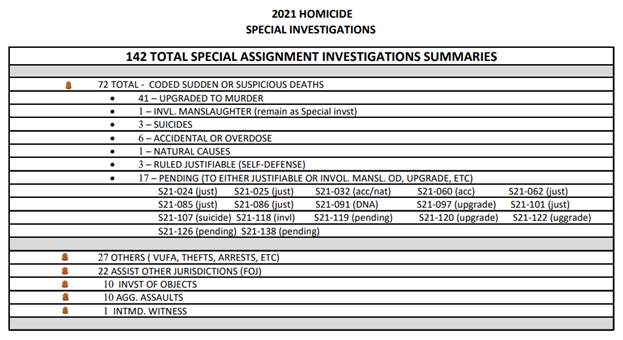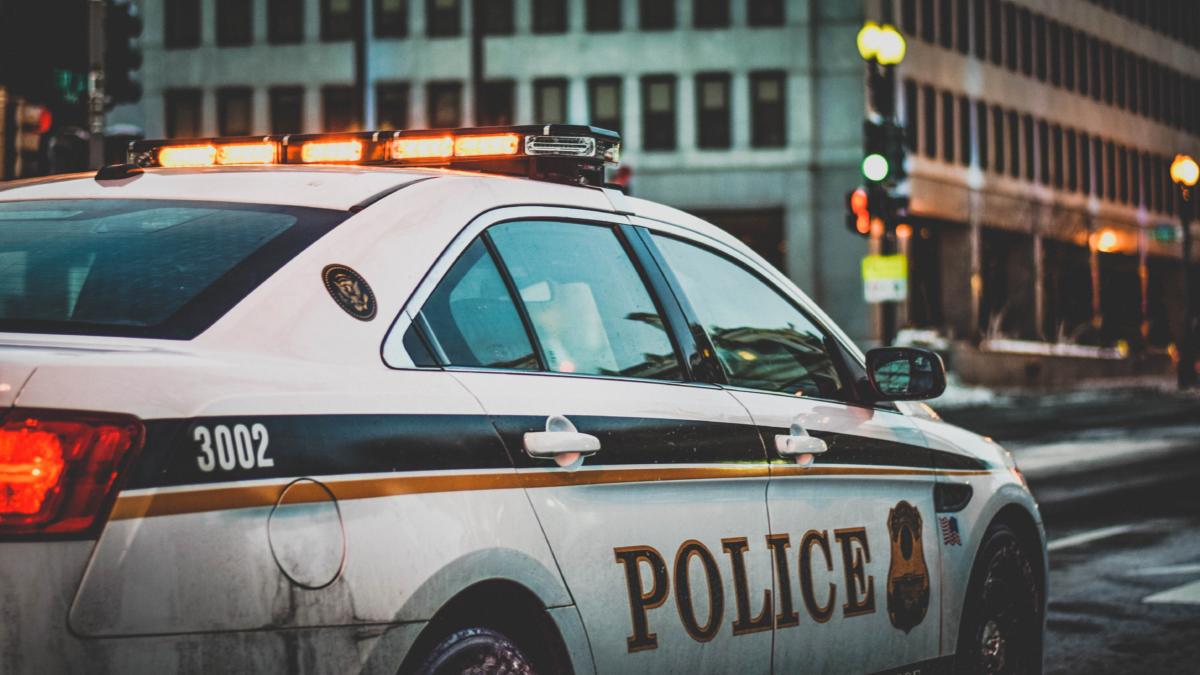In September, Philadelphia recorded its 400th murder at the earliest point in its history. Meanwhile, Philadelphia Police Department sources tell Philadelphia Weekly that there are also as many as 142 additional “special assignment investigations,” known by police as “S-jobs.” Of those, 72 are “Sudden or Suspicious Deaths,” which senior police sources allege may be serving as a tool used by Commissioner Danielle Outlaw’s administration to lower the already shocking homicide rate.
“I have seen ‘S’ numbers used as a way to defer and limit the number of murders,” said Derrick ‘Jake’ Jacobs, a retired Philadelphia homicide detective and DA’s Office whistleblower. “Usually the ‘S’ number can be properly classified after the ME [Medical Examiner] findings. For example: you find a decomp in the park, the ME conducts an examination and determines it was an OD, not a murder – this stays an ‘S-job.’ On the other hand, if he finds strangulation – this is a homicide, and the classification should be changed.”
In 2020, the city ended up with 499 killings, only one short of the record of 500 homicides set in 1990. That year, there were 173 “S-jobs” recorded, only 31 more than at this point in 2021, with three months left in the year. The current ‘S-Job’ numbers, confirmed by Police Public Affairs, include 17 pending cases, one deemed an involuntary manslaughter, three that were in self-defense, and 41 that were upgraded to murder and reflected in the current reported homicide statistics.
“Most of the time this is not done to ‘hide’ the actual murder tally.” Jacobs continued. “Although [in my 25 years on the Philadelphia Police] I cannot recall this level of S-numbers. Conservatively, say that 10-25 percent are definitely murders, but it does not take a year to determine that fact. So, for the sake of argument if you have 173 S-jobs, conservatively that is an additional 17 to 44 additional murders.”
Meanwhile, a ranking police department source told the Weekly, “We went way over 500 homicides last year. They buried some as ‘S-jobs,’ then they counted some who died in 2021, but who were shot in 2020, in this year’s numbers.” When asked where the press could get recorded statistics on which ‘S-jobs’ were later classified as natural deaths, overdoses, or murders, the senior police official answered, “No, they don’t publish ‘S-jobs.’ I don’t remember the exact number of ‘S”jobs’ this time last year, compared to this year, but my inclination is we have more this year. They are burying a lot of shit.”
This is not the first time that police officials questioned the validity of crime statistics coming from headquarters. In 2020, Capt. Jason Smith, then-commanding officer of Homicide, cited instances where “S-cases” were added to the homicide count, but other ranking police sources said that “S-Jobs” were just a way to keep the murder count down.
The 2020 statistics were called into question after a change in the official tally amid a bloody, three-murder New Year’s Eve. On Dec. 31, the city had reported 498 murders – a statistic that remained the same throughout New Year’s Eve, despite news coverage of the murder of a 15-year-old that afternoon. When the tally was briefly reconciled on the morning of Jan. 4, the 2020 homicide total was 502. Then, after two hours of social media reporting of the statistic, the tally was lowered to 499. When questioned by reporter Ralph Cipriano, police spokesmen said the change from 502 to 499 murders was a statistical error made by a web designer.
Mayor Jim Kenney’s recent response to the news that the city passed 404 murders in the third week of September was to tweet: “I am heartbroken and outraged that we’ve lost more than 400 Philadelphians to preventable violence this year.” Kenney continued, “My heart goes out to all families suffering from enormous grief. Our administration continues to act with urgency to reduce violence and save lives.”
Despite the empathy shown in social media statements by Kenney and Outlaw, sources within the department confirm that there have been no changes in deployments for elite units like the Narcotics Strike Force and the Highway Patrol, the department’s response to crime surges of past years.
Meanwhile, instead of using our current robust resources to address this issue using proven methods, the local political establishment is seemingly creating a cottage industry in response to the city’s tragic lives lost.
District Attorney Larry Krasner characterized the uncontrolled rise in violent crime as “senseless” and “preventable,” while calling for greater investment for schools and social programs instead of calling upon proven law enforcement initiatives and increased accountability within the criminal justice system. This was echoed throughout the city’s leadership as City Council approved a 2022 budget that invests over $155 million in “violence prevention” programs outside law enforcement. The budget includes $22 million in grants for nongovernmental organizations focused on “reducing violence through trauma-informed healing, restorative practices, safe havens and mentorship.”
This experiment also extended to state government, where Gov. Wolf joined state officials on Sept. 23 in West Philadelphia to encourage “community-based violence prevention groups to apply for millions of dollars in state grants.” As they spoke, four people were shot in a drive-by nearby, underscoring how pervasive the issue has become.
“I know most Philadelphians are rightfully outraged and frustrated by our city’s rise in violence,” Kenney said on Twitter. “Please know, our administration takes this crisis very seriously. We are committed to working with all of our criminal justice & community partners to create a safer city for us all.”
But despite the promises of new programs and funds, there have been no concrete plans deployed to address the failures in Philadelphia’s law enforcement and prosecution strategies. Although Outlaw’s claims that the “department continues to make a record number of crime gun confiscations, and a record number of arrests of the individuals in possession of them,” there is a noted absence of urgency in the tactical deployment of the city’s law enforcement resources.
Regardless of how they are reported, there are far too many murders being committed in a city with the nation’s fourth-largest police department. Furthermore, the leaders paid by Philadelphians to address this issue are not providing proven solutions to protect their constituents. To fix this, voters need to hold their leaders accountable, and elect leaders willing to put politics aside to protect lives.
@PublicSafetySME






